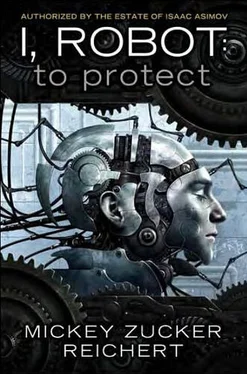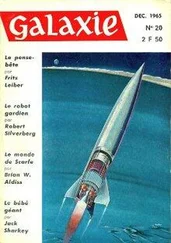As Diesel had not had brain surgery, Susan discarded the possibility. “There are also other congenital obesity syndromes.” She desperately wished she had Monk’s freedom, stuck with racking her brain from genetics class. “There’s Bardet-Biedl syndrome, for instance.” She hoped no one asked for specifics, as she could not recall them. “Hypothyroidism, hypercortisolism, leptin deficiency.” Another thought filled her mind, a brief memory from a single class about rare syndromes. “I’d like permission to explore some of those possibilities.”
Bainbridge stroked his chin. “I see no harm in that. So long as you keep cost in mind. Start with the most inexpensive tests likely to yield the most results.”
Susan had the perfect answer. “He’s had borderline thyroid studies in the past, but it’s only TSH and T4. I’d like to add free T4. Also, how about a vision screening? With a dark room, dilating drops, a cooperative patient, and a decent ophthalmoscope, I can do it myself.”
Now, all attention in the room went to Susan.
Misunderstanding the staff’s sudden interest in her, Susan added, “I believe he’ll cooperate with me. He’s not always in volcano mode.”
Stony explained, “Susan, we’re just wondering what an eye exam has to do with physiological obesity.”
Susan had thought the connection obvious. “In Prader-Willi, the obesity is hypothalamic. The hypothalamus regulates food satiety and hunger, as well as body temperature, mood, thirst, vomiting, pain sensation, hormonal balance and secretion, and some other things I’m probably forgetting. Diesel has six obvious features of hypothalamic dysfunction.” Susan ticked them off on her fingers. “Obesity, hyperphagia, serious mood disorder, short stature, inability to vomit, and high pain tolerance.” She had learned about the last two just minutes earlier. He had directly told her about the vomiting. The high pain tolerance she deduced by his love of football and his positions, despite his squat figure.
“I’m with you so far,” Stony said. “But still not making the vision connection.”
Susan cleared her throat and looked around. Monk still furiously consulted his Vox, but he clearly had not yet found the thread of her logic. “Diesel has no history of head surgery or trauma to indicate he had damage to the hypothalamus. Monk mentioned craniopharyngioma.”
As Susan drew attention to him, Monk swiftly dropped his arm.
“But, as he said, the tumor itself rarely causes these kinds of problems. It’s when the tumor gets irradiated or surgically removed that the hypothalamus becomes damaged. Since craniopharyngiomas are nearly always benign, they have no cancer markers to attack with immunotherapy; and we still have to remove them the old-fashioned, surgical way. So, we can obviously see what causes many of the problems in Prader-Willi syndrome, and post-craniotomy syndrome, is damage to the hypothalamus.”
As Susan explained her theory, she began to realize she had previously jumped several steps. As she filled them in, she saw how she had lost her companions along the way. “So, if I assume Diesel has hypothalamic damage causing his symptoms, and it didn’t come from surgery or head trauma, it has to be something he was born with, right?” She looked around at her fellow residents, the nurses, and Bainbridge. They all still seemed attentive to her. No one wore the “aha” expression of someone who had just figured out something that had previously eluded him.
“The hypothalamus forms during weeks four to six of embryonic development, the exact same time and place as the optic nerve.”
Now, Susan saw a few heads begin to bob.
“Unlike the hypothalamus, which is deep inside the skull, we can actually view the optic nerve directly. We don’t need an MRI or anything fancy. If he has abnormal optic nerves, it would indicate some sort of mishap in weeks four to six of fetal development and would help substantiate my hypothalamic obesity argument.” The coup de grâce delivered, she looked around at her fellow residents.
Stony spoke first. “But if Diesel has abnormal development of the optic nerves, wouldn’t he be blind? Or, at least, wear glasses?”
“I’m not sure,” Susan admitted.
Monk launched into his Vox. Having edged behind Bainbridge, Nevaeh did the same.
Diesel’s nurse, a large man with brown hair and a thick mustache, said, “I’ve often wondered if he didn’t need glasses, but he won’t cooperate with chart vision testing.”
Susan still believed she could get Diesel to allow her to examine him.
Monk finally came back with an answer. “Congenital abnormalities of the optic nerve can result in blindness, decreased vision, loss of snippets of visual field, or even normal or near-normal vision.”
Bainbridge nodded thoughtfully. “Definitely sounds worth pursuing vision screening and the free T4 level. We may also need to consider a growth hormone and cortisol stimulation test.”
Susan smiled, appreciating his new faith in her. With a glance at his Vox, Stony tried to move things along. The longer rounds took, the less actual work got done. Susan knew from her experiences as a medical student that the first rounds of the month usually took much longer, as residents and the attending learned the new patients. Later, it would dwindle to things that had happened the previous day, changes in treatment plans, and discussion of new discharges and admissions. “Susan, do you have any patients without underlying undiagnosed medical problems requiring immediate attention?”
Susan laughed. “Two. Monterey Zdrazil.” She stumbled over the last name. “Zzz-drah-zil.”
“It’s Zdrazil,” one of the nurses corrected, pronouncing it “ Dra y-zull.”
Susan practiced the pronunciation. “Monterey Dray -zull is a twelve-year-old white female with post-traumatic, hysterical mutism times six years.”
“Six years ?” Bainbridge could not help cutting in. “I’ve never heard of such a thing, at least not outside of a soap opera.”
Susan could only nod. Her limited research the previous night had not gotten her far. Normally, mute children came in three varieties: deaf-mutes, selective mutes, and post-traumatic mutes. Monterey had spoken normally for the first six years of her life and had passed hearing tests in the newborn nursery and at school. Selective mutes, by definition, spoke when relaxed but refused to talk in anxiety-provoking situations, such as school.
By report, Monterey had not spoken a single word since a car accident six years ago, which put her clearly in the category of post-traumatic mute. However, she did not fit those criteria well, either. In most cases, post-traumatic mutes had serious head trauma affecting the midbrain area, and they recovered speech function gradually in days to weeks. Hysterical mutism fit her better, as she met the criteria of sudden onset after a stressful event and absence of a causal organic disease. However, Susan could not find any other cases of conversion reactions of any kind occurring before age ten.
“And it’s definitely psychiatric this time,” Susan said without a hint of doubt. “She’s had the most complete workup for medical illnesses I’ve ever seen in my life. They’ve tried every antianxiety drug ever invented, including some so old we didn’t learn about them in school. Her brain looks perfectly normal on MRI, even in the speech areas. On the other hand, the mutism started when she was involved in an auto accident that killed her father. No one knows exactly what happened, but she was firmly buckled into her booster and he . . . was not.”
Stony’s eyes glimmered. “So, what’s your theory, Susan?”
Susan had nothing to add. “I agree with everyone else. She suffered a major trauma, and the mutism is a conversion reaction. Somehow, not speaking binds her anxiety and guards her against future pain. It’s rare in children but not unheard of.”
Читать дальше












